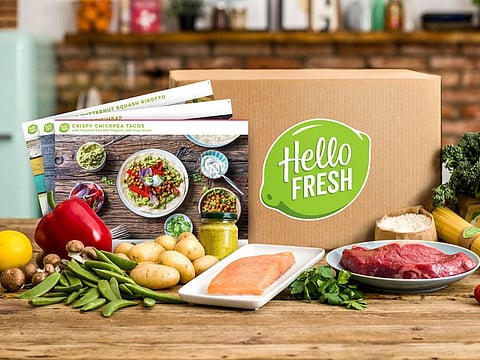HelloFresh investors struggle to swallow strategy revamp
German meal-kits maker shocked markets on Friday with second profit warning in 5 months

HelloFresh needs to cut costs and stem an exodus of meal-kit subscribers to boost profits and revive its share price, according to investors and analysts, who remain to be convinced by a plan to expand its fledging ready-meals arm.
The German meal-kits maker shocked markets on Friday with its second profit warning in five months, citing higher marketing expenses and the cost of ramping up its ready-to-eat business. The shares plunged by almost 50%.
The company - once a pandemic-era darling - also announced a strategy revamp, including plans to beef up its ready-meal delivery arm to offset flatlining revenue at its core meal-kit business. It lost more than a million active customers in both during the first nine months of last year.
It set a goal to boost revenue from ready meals, which analysts estimate make up 20% of sales, by 50% in 2024. That would be the second year of such growth. It also pledged to cut costs, including on marketing, and use more automation to improve productivity.
Union Investment, HelloFresh's 12th largest shareholder with a 2.9% stake, said the reboot was management's "last chance" to restore credibility.
"If this (does) not succeed, a change will be urgently needed," Union's portfolio manager Christian Reindl told Reuters.
CEO Dominik Richter will be under pressure to explain his thinking about the overhaul on Friday when the company releases 2023 results.
Analysts question how the company will spend much-needed cash on promotions and advertising to win new ready-made meal customers given stiff competition from takeaway services, online grocery stores and supermarkets.
Jefferies' analyst Sebastian Patulea said that while ready-to-eat meals could be a multi-billion opportunity, it was unclear if it could make up for the loss of meal-kit revenue, or if it would be easy to expand into Europe. HelloFresh is expanding its U.S. arm Factor to the Netherlands and Belgium.
Pandemic surge
Like food delivery and other meal-kit companies, HelloFresh boomed during the pandemic when customers ordered boxes of pre-portioned ingredients to cook at home during lockdown.
But now the meal-kits business, its biggest by revenue, is losing customers as people go out more and spend less as inflation hits their pockets.
"We were wrong in our assumptions ... that we would be able to maintain our margins at some of the peak pandemic levels," Richter told analysts on Friday.
Since peaking at 16.6 billion euros ($18.1 billion) in August 2021, HelloFresh's market value has plunged about 90%.
U.S. meal-kit rival Blue Apron was bought by startup Wonder Group for $103 million last year after warning revenue and customer numbers would fall in 2023. It was worth $1.9 billion when it listed in 2017.
Union's Reindl expects management to announce more restructuring on Friday.
HelloFresh "must come to terms with the fact that the strong growth rates of the coronavirus years are over and address the cost base," he said.
The company should either switch meal-kit capacity to boost output of ready-to-eat meals, as that would require less investment than building from scratch, or it will face staff cuts and plant closures, he said, adding it also needed to better target marketing at existing customers.
Another change that unsettled investors and analysts was a decision to stop disclosing active customer numbers, a key metric for profitability.
To do so at a time of such turmoil was "unfathomable", making accurate analysis of the group harder, UBS analyst Jo Barnet-Lamb said.
Ready meals have been successful in the United States, where people grab quick lunches, but in countries such as Italy and Spain people are more likely to socialise over lunch.
"We think this is the start of a bumpy road," Barnet-Lamb said.


